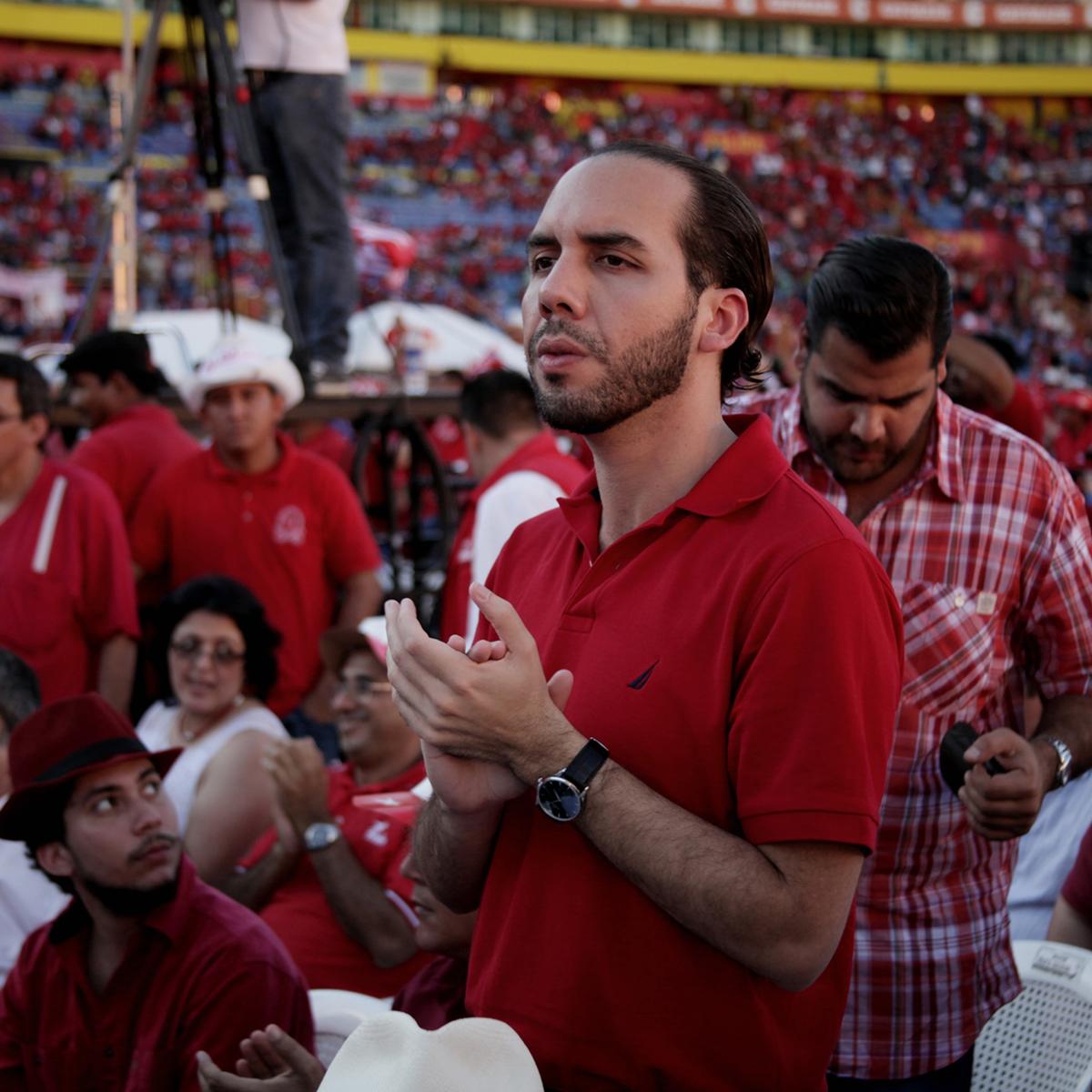Since its inception, this newspaper has investigated corruption, abuses, and criminal pacts involving every government we have had. We have not hesitated to point out what needed to be pointed out, but we have tried to put each accusation in its proper context.
Shortly after Nayib Bukele took office in 2019, we received indications of the existence of a pact with gang leaders. This did not surprise us, given that we had already verified agreements between his team in the San Salvador Mayor’s Office and the gangs. Not only were there the photos that Bukele mocked as president, trivializing a meeting with criminals as a simple get-together at a Pizza Hut “for some breadsticks.” There were also testimonies and confirmations of positions given to gangs in the Cuscatlán Market in exchange for votes in gang-controlled communities.
The confessions of “Charli,” the gang leader whose interview we just published, only confirm in his own words what we already knew: The gangs began working with Bukele during his 2014 campaign for San Salvador mayor. This gang member confirms another important element: The original agreement was made with the FMLN, the party for which Bukele was a candidate. It included economic “incentives” for gang members, in exchange for electoral support for Salvador Sánchez Cerén, the presidential candidate (Arena also agreed to economic incentives in exchange for electoral support); and a year later for Bukele, candidate for mayor of San Salvador.
Bukele was expelled from the FMLN four years later and won the presidency under the banner of GANA, exploiting the population’s frustration with the two major political parties, Arena and the FMLN, which were mired in corruption. Bukele promised to end this corrupt two-party system, and his campaign team successfully distanced him and his team from these parties and their vices. But Bukele is no stranger to those vices.
The president surrounded himself with the worst operators of Arena and the FMLN: Herbert Saca, a political operative of multiple governments accused of corruption; former legislator Guillermo Gallegos, accused in various corruption cases; internationally sanctioned chief of cabinet Carolina Recinos; press secretary Ernesto Sanabria, in charge of Bukelista propaganda; and the circle of former guerrilla commander and FMLN leader and financial operative José Luis Merino, such as Merino’s right-hand man Erik Vega. And Bukele freed gang leaders such as historic MS-13 leader Élmer Canales Rivera, “Crook”, whom his own administration illegally released from prison.
This edition also confirms the participation of Nayib Bukele’s team, which today holds key positions in the government, as a liaison between the then-mayor and the gangs: the current director of Social Fabric, Carlos Marroquín, also a liaison in Bukele’s pact with the gangs; Dennis Salinas, now a legislator for Nuevas Ideas and a member of the National Security Committee; and Víctor Martínez, alias Scar, now an alternate for ruling-party legislator Suecy Callejas. And Bukele himself, whom the gangs knew by the pseudonym he kept in the expanded pact even after becoming president: Batman.
Nor is it new to confirm, through this new source, that Salvadoran politicians have deceived citizens by making deals under the table, feeding criminal organizations with money and other concessions in exchange for electoral support and declines in the homicide rate. None of them have addressed the root causes of the problem: marginalization, neglect, and the lack of rights for millions of citizens. And they empowered them so much that the gangs came to believe they had the power to raise up and take down governments.
But this installment also provides crucial details that have not been revealed until now, told in the voice of one of the former gang leaders who entered the maximum-security prison wearing a hood to receive instructions from his superiors, with the permission of Nayib Bukele’s government, and who was released just hours after being captured under the state of exception.
Through Charli, we better understand the role that the government assigned to the gangs during the pandemic, including the administration of homicides and extortion agreed upon with this same administration, led by a man who bills himself to the world as a great enemy of these criminal organizations. Without his agreements with the gangs, it is impossible to understand Nayib Bukele’s political rise.
We do not say this lightly: We are witnesses to a mafia regime.

